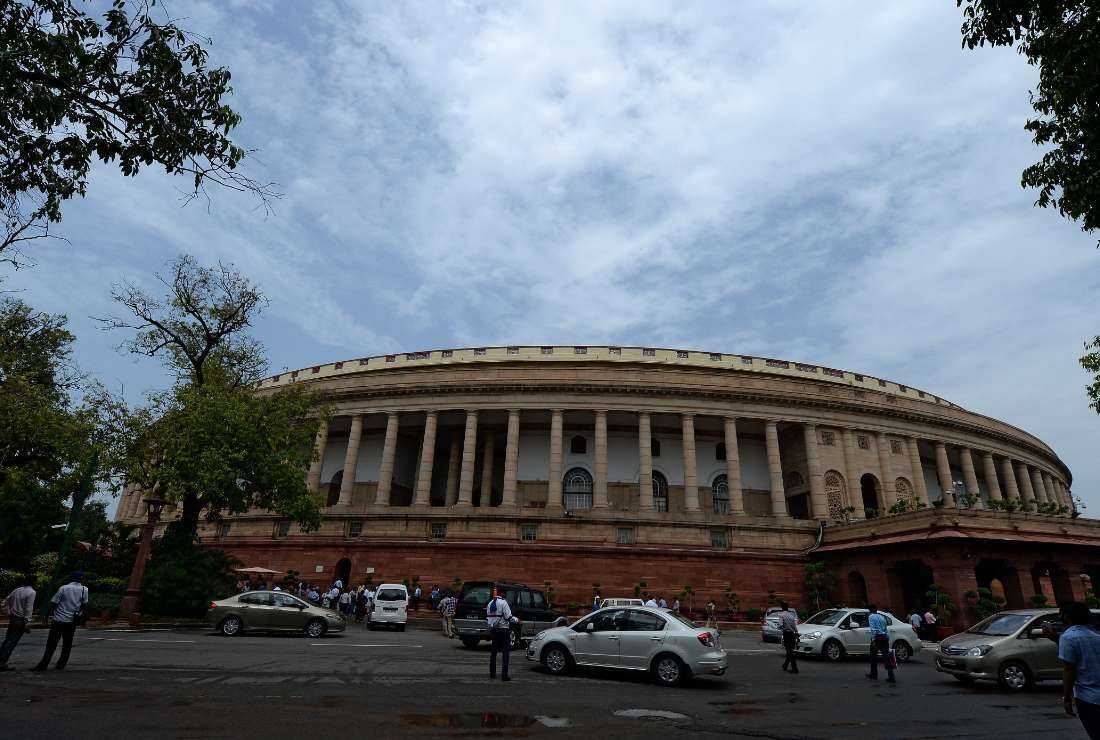
Monsoon clouds loom over India's Parliament as members arrive for the Monsoon session of Parliament in New Delhi on July 18, 2016. (Photo: AFP)
India's parliament on Dec. 21 rushed through the country's biggest criminal justice overhaul since the British colonial era, alarming rights campaigners and Church leaders who say the new laws give authorities too much power.
Sweeping changes to the colonial-era Penal Code and two other laws remove archaic references to the British monarchy, redefine the scope of "terrorism" offenses, and introduce new punishments for mob lynchings and crimes against women.
Home Minister Amit Shah said when unveiling the three proposed laws in August that the old statutes had been designed to "strengthen colonial rule" and had outlived their purpose.
"The motive of the three bills is not to give punishment but to give justice," he told lawmakers on Thursday.
The new laws quickly passed through both houses of parliament over two days with minimal debate, after nearly 150 opposition lawmakers were suspended over the past week for protesting an unrelated issue.
New provisions in the laws would impose the death penalty on perpetrators of mob lynchings and the rape of a minor, as well as a 20-year minimum sentence in cases of gang rape.
They introduce community service provisions for petty crimes to ease the chronic backlog in Indian courts, which have millions of pending cases.
The laws also heighten police powers over the detention of suspects and expand terrorism offenses to include acts that could threaten India's sovereignty or "economic security".
Amnesty International said the new criminal justice framework would intensify a "targeted crackdown on freedom of expression in the country".
The laws "dangerously broaden the definition of 'terrorism', reintroduce sedition, retain the death penalty, and extend police custody", the rights watchdog said.
The Catholic Church, which has been campaigning against the death penalty globally, cannot approve of proposing capital punishment as a deterrent to crimes, observed Father Stanislaus Alla, a teacher of moral theology at Vidyajyoti College of Theology in the capital New Delhi.
“Every person has inviolable dignity and God-given sanctity and they must be promoted and upheld and not taken away,” Father Alla told UCA News on Dec. 21, reacting to the change of law.
While participating in the debate in parliament, opposition law-maker Derek O’Brien said 74.1 percent of 539 people on death row in the country are from economically disadvantaged backgrounds.
In the United Nations General Assembly, India has voted against a draft resolution on the abolition of the death penalty.
'Wiping off colonial past'
India's Penal Code, and statutes governing the police and courts were introduced in the 19th century when the country was under British rule.
The legal overhaul is the latest effort by Prime Minister Narendra Modi's Hindu-nationalist government in its campaign to remove lingering symbols of colonial rule from India's history books, urban landscape and political institutions.
Modi's government has passed several laws through parliament this week while more than half of the legislature's opposition lawmakers were barred from attending.
They had been protesting a security breach last week that saw a member of the public enter the floor of the lower house and set off a smoke canister.
Parliament also passed a telecoms bill that allows the government to temporarily take control of and suspend telecom services in the interest of national security.
The new telecoms law's expanded powers have been criticized by campaigners who say India already regularly uses internet shutdowns to manage unrest.
Lawyer and digital rights advocate Apar Gupta told AFP that the law would uphold the government's power to shut down the internet "without any statutory safeguards".


